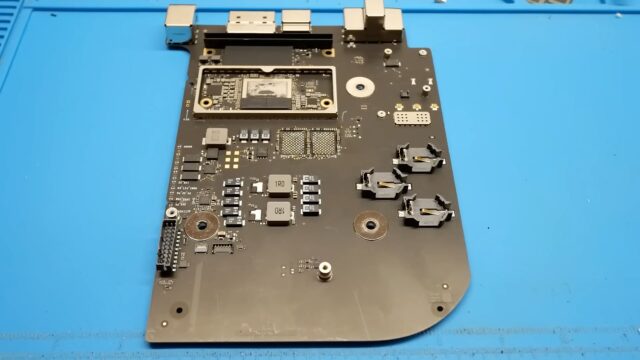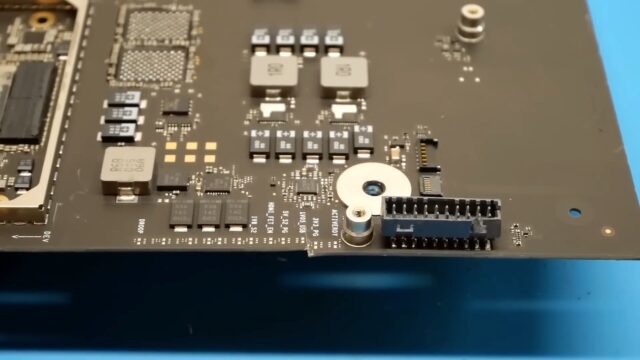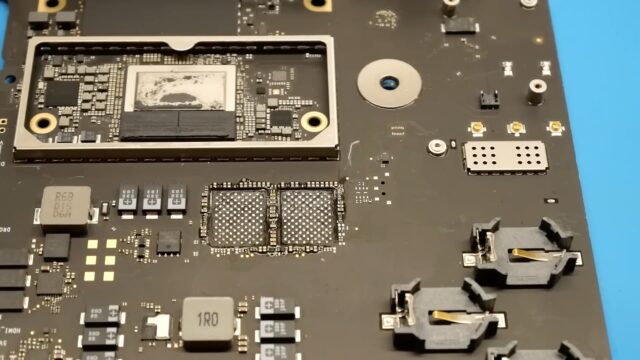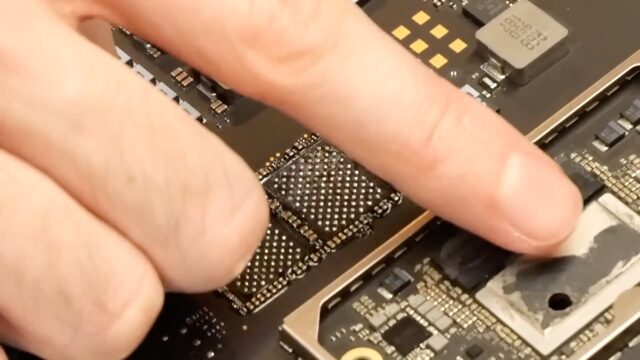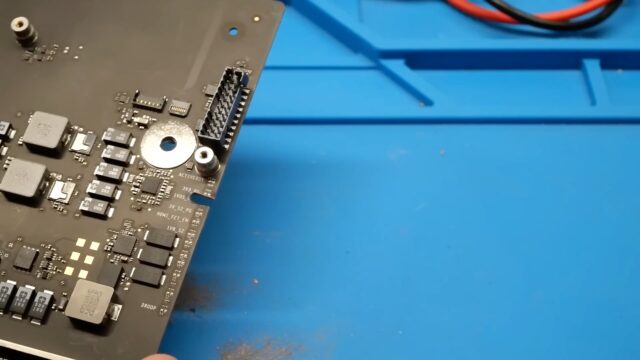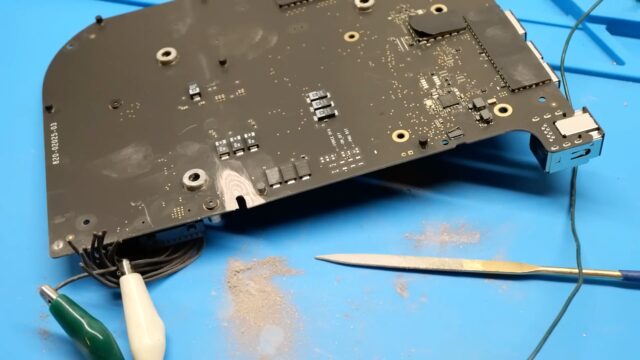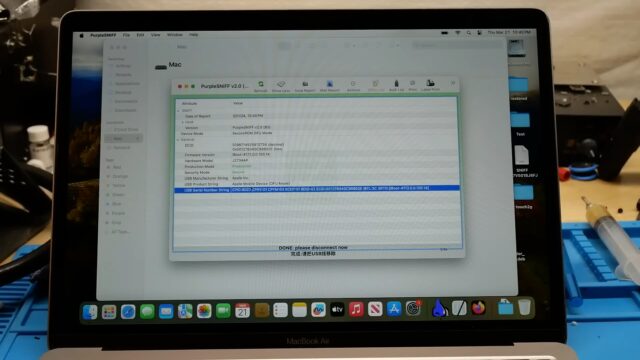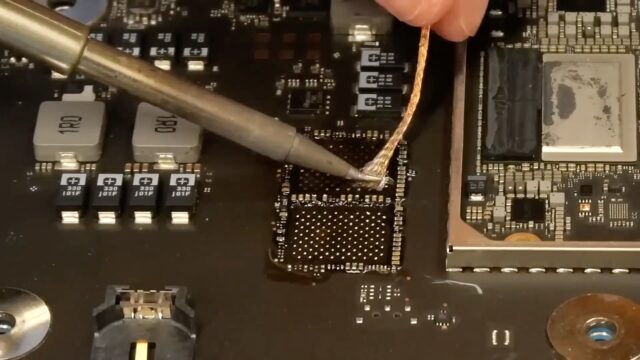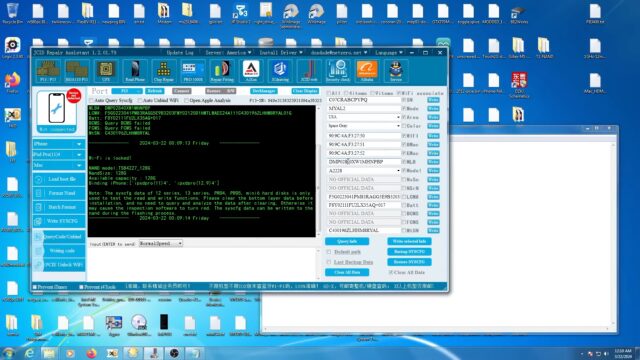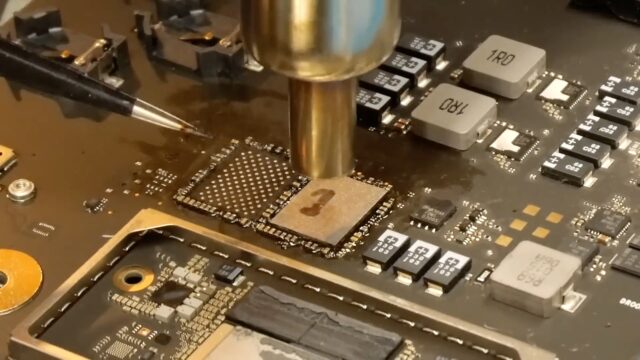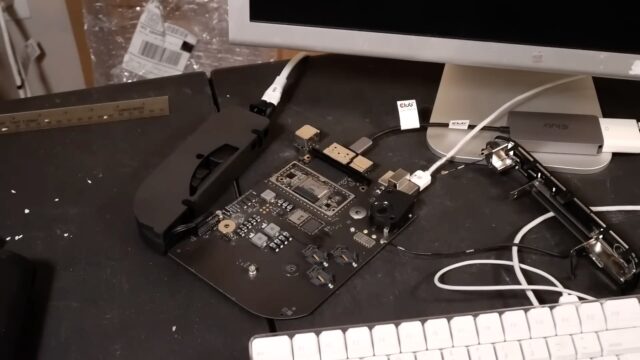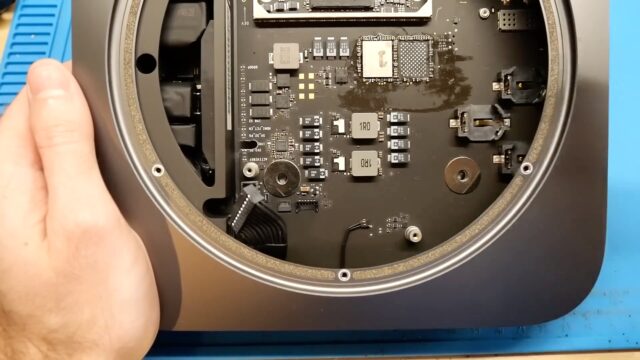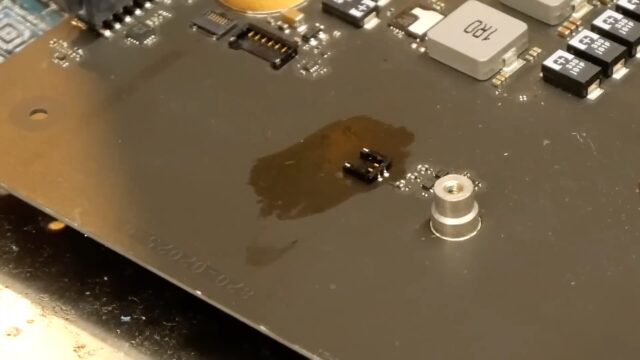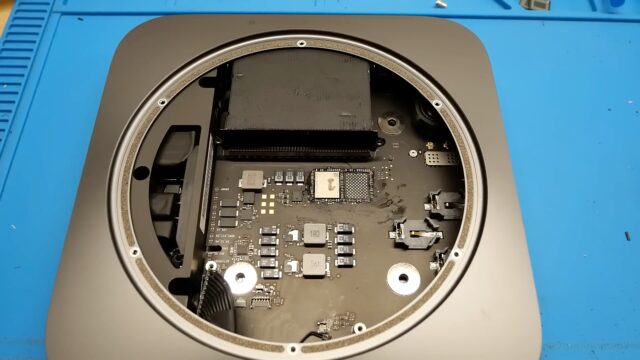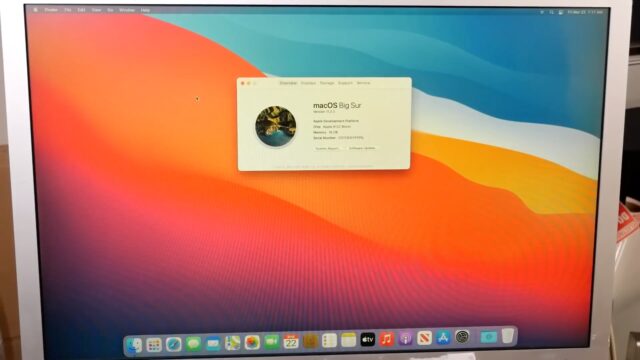Seen on YouTube, the restoration of an ARM development kit by dosdude1. If the machine seems familiar, that’s because it was recently sold on eBay.
Some context: the DTK is a Mac mini with a specific motherboard, based on an iPad Pro. When Apple collected the DTKs rented to developers for $500, they were sent to be discarded in China, undergoing a small destruction process by Apple. In the motherboards I’ve seen, there’s sometimes a drilled hole in the SoC, for example. The one from dosdude1 only has a small cut on the side, but it causes a short circuit in the power supply.
The first step was to enlarge the hole and file the motherboard to eliminate the short circuit, which was in an internal layer, probably because the PCB was bent.
Next, there’s the flash memory. The chips were presumably recovered by recyclers to be installed in Macs, iPhones, or iPads. So, he cleaned the traces, replaced a few small components pulled off with those from another motherboard, and installed a NAND chip from a 2020 MacBook Air, programmed to boot. Once the DTK was restored and started, he tried to activate it but didn’t succeed. There is an explanation: the data entered into the NAND chip does not match the machine, so it needs to boot, let the activation give an error, desolder the NAND, and use software to retrieve the correct information, before reprogramming and resoldering it. It’s tedious but effective: then the DTK boots, with only 128 GB of storage (compared to the original 512 GB).
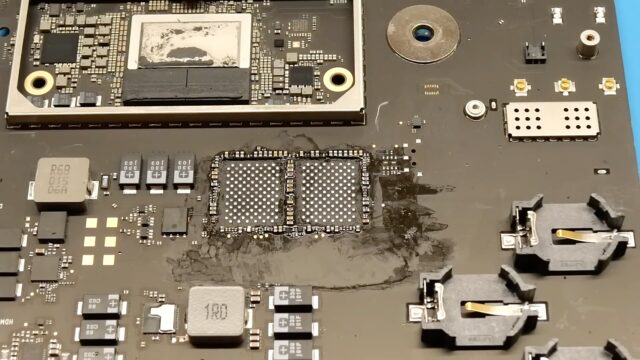
Installing it in a 2018 Mac mini case was fairly simple: the power supply is the same as the DTK, and the case is very similar. He recovered the heatsink from another DTK, the Mac mini fan, and soldered a connector for the Mac mini’s LED. It’s unique: the original case has a different LED, but the motherboard has traces for the 2018 Mac mini LED. Finally, the rear plate is from a Mac mini M1, as it has the same I/O as the DTK, while the 2018 Mac mini has more USB-C ports.
Once everything was in place, he had a pseudo-DTK with 128 GB of storage, running macOS Big Sur (12.2.3, the last compatible version).
